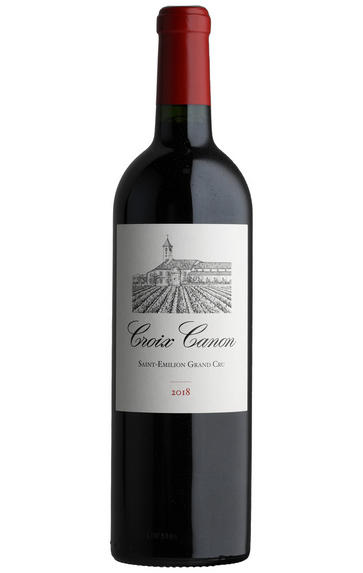
2018 Croix Canon, St Emilion, Bordeaux
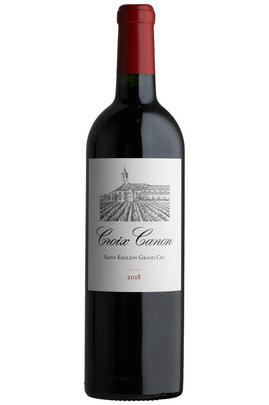
Critics reviews
The 2018 Croix-Canon has a lovely, high-quality nose of exuberant black cherry and black plum fruit, perhaps showing more mineralité than when I tasted it from barrel. The palate is medium-bodied with an edgy, very graphite-infused entry, still smooth but with a sharp, fresh finish and residues of cracked black pepper lingering on the aftertaste. Excellent.
Drink 2022 - 2038
Neal Martin, Vinous.com (March 2021)
The 2018 Croix Canon is a total pleasure to taste today. Sumptuous and inviting, with so much appeal, Croix Canon is a fabulous wine to drink now and over the next decade, maybe more. Soft curves, silky tannins and pliant fruit give the 2018 so much charm. Dark plum, spice, new leather, rose petal and mint all wrap around the juicy finish. In a word: exquisite.
Drink 2025 - 2033
Antonio Galloni, Vinous.com (March 2021)
This is not a second wine of Canon but a separate vineyard that borders Canon in one small section. The 2018 Croix Canon comprises 65% Merlot and 35% Cabernet Franc, with a pH of 3.69 and 14% alcohol.
Deep garnet-purple in colour, it opens with Morello cherries, black raspberries and stewed tea notions, giving way to hints of menthol, tobacco, sandalwood and fragrant earth, plus a waft of dried mint. Medium to full-bodied, the palate has surprising elegance with plenty of freshness lifting the softly textured red and black fruit preserves, finishing on an iron ore note.
Lisa Perrotti-Brown MW, Wine Advocate (April 2019)
A creamy and pretty red with lots of dried flowers and spices with fresh fruit. Minerals, too. Medium-to full-bodied. Chalky.
James Suckling, JamesSuckling.com (April 2019)
The vineyards used for Croix Canon are a little lower down on the slopes, on limestone, clay and sand, giving good aromatics but less depth than the grand vin. It's elegant and fresh, and good for earlier drinking. There were no blockages in either Cabernet or Merlot at Canon, and this 2018 is a great wine.
Clean, fresh aromatics are apparent right from the off. The aromas just keep on coming in the glass, with scents of blueberry and raspberry, leading to a palate of beautiful tension and freshness. There is clear emphasis on the juicy, intact and intense fruit here.
Drink 2025 - 2040
Jane Anson, Decanter.com (April 2019)
The second wine of this terrific estate, the 2018 Château Canon Croix Canon, is well worth your time and money. Deep purple-hued, with a sumptuous bouquet of black raspberries, cassis, tobacco leaf, damp earth, and graphite, it hits the palate with medium to full-bodied richness, a fleshy, rounded mouthfeel, no hard edges, and a great finish.
This is pure Saint-Emilion pleasure and is ideal for enjoying any time over the coming 15 years. I suspect it will be even better with 3-4 years of bottle age.
Drink 2024 - 2036
Jeb Dunnuck, JebDunnuck.com (March 2021)
About this WINE
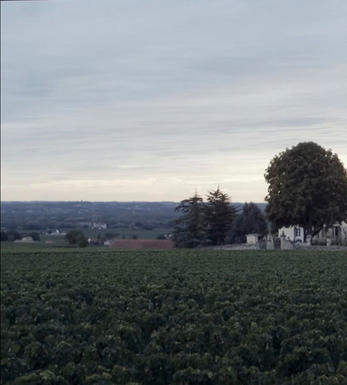
Chateau Canon
Château Canon, a famous St.Emilion property is named after Jacques Kanon who bought the estate in 1760. Since 1996 it has been owned by Chanel, who also owns Château Rauzan-Ségla in Margaux.
Located in the centre of the St.Emilion appellation, to the south-west of St-Emilion town, Canon has 18 hectares of vineyards split between the limestone plateau and the clay/loam côtes. They are planted with 55% Merlot and 45% Cabernet Franc. Vinification is traditional: up to 20 days in temperature-controlled wooden vats followed by 18 months' maturation in oak barrels (70% new).
This wine needs cellaring to show at its best and mature Canon reeks of the soft, buttery Merlot grape as only the very top St-Emilions and Pomerols can. It is classified as a 1er Grand Cru Classé (B).
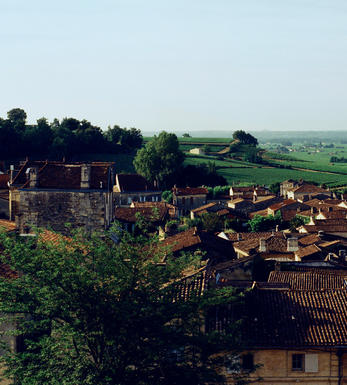
St Émilion
St Émilion is one of Bordeaux's largest producing appellations, producing more wine than Listrac, Moulis, St Estèphe, Pauillac, St Julien and Margaux put together. St Emilion has been producing wine for longer than the Médoc but its lack of accessibility to Bordeaux's port and market-restricted exports to mainland Europe meant the region initially did not enjoy the commercial success that funded the great châteaux of the Left Bank.
St Émilion itself is the prettiest of Bordeaux's wine towns, perched on top of the steep limestone slopes upon which many of the region's finest vineyards are situated. However, more than half of the appellation's vineyards lie on the plain between the town and the Dordogne River on sandy, alluvial soils with a sprinkling of gravel.
Further diversity is added by a small, complex gravel bed to the north-east of the region on the border with Pomerol. Atypically for St Émilion, this allows Cabernet Franc and, to a lesser extent, Cabernet Sauvignon to prosper and defines the personality of the great wines such as Ch. Cheval Blanc.
In the early 1990s there was an explosion of experimentation and evolution, leading to the rise of the garagistes, producers of deeply-concentrated wines made in very small quantities and offered at high prices. The appellation is also surrounded by four satellite appellations, Montagne, Lussac, Puisseguin and St. Georges, which enjoy a family similarity but not the complexity of the best wines.
St Émilion was first officially classified in 1954, and is the most meritocratic classification system in Bordeaux, as it is regularly amended. The most recent revision of the classification was in 2012
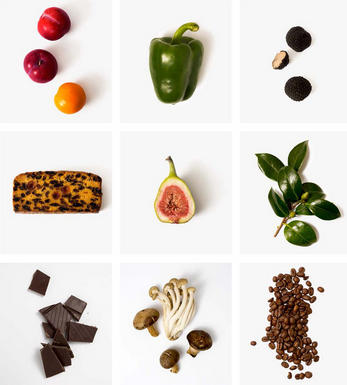
Merlot
The most widely planted grape in Bordeaux and a grape that has been on a relentless expansion drive throughout the world in the last decade. Merlot is adaptable to most soils and is relatively simple to cultivate. It is a vigorous naturally high yielding grape that requires savage pruning - over-cropped Merlot-based wines are dilute and bland. It is also vital to pick at optimum ripeness as Merlot can quickly lose its varietal characteristics if harvested overripe.
In St.Emilion and Pomerol it withstands the moist clay rich soils far better than Cabernet grapes, and at it best produces opulently rich, plummy clarets with succulent fruitcake-like nuances. Le Pin, Pétrus and Clinet are examples of hedonistically rich Merlot wines at their very best. It also plays a key supporting role in filling out the middle palate of the Cabernet-dominated wines of the Médoc and Graves.
Merlot is now grown in virtually all wine growing countries and is particularly successful in California, Chile and Northern Italy.


Buying options
Add to wishlist
Description
The Croix Canon is vibrant with a bright purple hue. The nose bursts with juicy raspberry, black plum and bramble yet a warm spice underlies the fruity tones. The palate is undeniably Bordeaux with a pronounced earthiness that mingles with blackcurrant and cedar. The tannins are noticeable yet this is certainly pleasant to drink now with a smooth, velvety texture and lingering taste. An elegant example of how good second wines from Bordeaux can be.
Drink now until 2035
Henrietta Gullifer, Account Manager, Berry Bros. & Rudd (August 2022)
wine at a glance
Delivery and quality guarantee